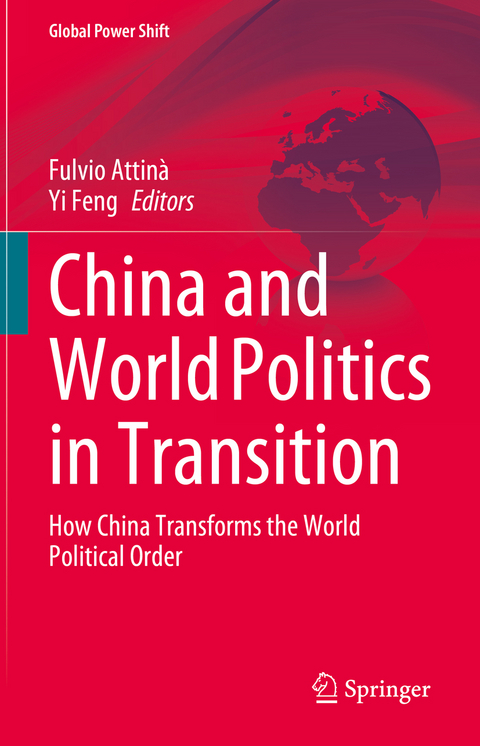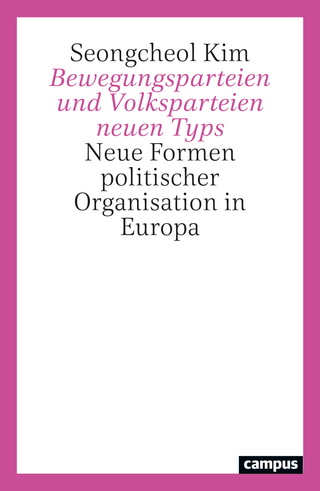
China and World Politics in Transition
Springer International Publishing (Verlag)
978-3-031-27357-5 (ISBN)
This book analyzes China's transformative political power in today's world while simultaneously addressing global issues and the reformation of world institutions. China has become known as the world's first factory and trading power, but more knowledge on China's rise is necessary to understand the world of today and the future. The main question is where China's rise is headed and how this affects the increasingly connected world that faces problems that no state can effectively address on its own.
This book analyzes both sides of the coin, that is, the problems of a world scale and the change of the world political order. China is among the major actors for global issues such as mitigating climate warming, controlling weapons of mass destruction, combating economic inequality and underdevelopment, and improving health for all. In the current setting of the new world order, all countries and especially world powers develop a general blueprint for the future, as cultural andmaterial conditions of the present world are very different from the past. Under such conditions, China faces a review of its bilateral and regional strategies, as well as its position and actions in world institutions that have the mission of forming policy responses to issues of a global scale.
This book, therefore, provides insight into China's view of world problems and the future world order. It is a must-read for everybody interested in a better understanding of China's role in today's world and the global power shift.
lt;p>Fulvio Attinà is Professor Emeritus of Political Science and International Relations, and Jean Monnet Chair Ad Personam at the University of Catania, Italy. He is a former Chair of the Italian Association of Political Science (SISP). Furthermore, he served in the governing bodies of ECPR, ISA and the Italian ECSA. Attinà is the author of various works on evolutionary world politics, multilateral security, Euro-Mediterranean relations, mass migration, and the institutional development of the European Union. His current research focuses on uncovering the link between global issues, multilateral policymaking, and the future world order.
Yi Feng is the Luther Lee Jr. Memorial Chair Professor in Government at the Faculty of International Studies at Claremont Graduate University, USA. He has additionally served as provost and vice president for academic affairs (2006-2011), as dean of the Division of Politics & Economics (2003-2006), and was the founding chair of the Department of International Studies (2016-2020). Feng has also served as the general program chair for the International Studies Association Annual Conference (Hawaii, 2004-2005) and has published extensively on such topics as economic growth, investment, human capital, international trade, demographic transition, and political regime transitions. Feng's research focuses on the political economy of international development, international political economy and international relations.
Chapter 1. Introduction: The World Policy of China at the Time of the War in Ukraine.- Part 1: China on the World Stage.- Chapter 2. China's Vision for a Future World Order and Its Implications for Global Governance.- Chapter 3. A Chinese Century: A Stable or Unstable World?.- Part 2: China and World Policies.- Chapter 4. The Response of China and the Great GHG Emitters to the World Climate Policy.- Chapter 5. Major Powers, Middle Powers, and Multilateral Arms Control Negotiations: The Case of China.- Chapter 6. China and International Development: Narratives and Strategic Priorities.- Chapter 7. Health Problems, World Institutions and China's Approach to Pandemic Outbreaks.- Part 3: China's Links with Asia and Europe.- Chapter 8. Chinese Linkage and Leverage Under the Belt and Road Initiative (BRI) in Asia.- Chapter 9. Covid-19, American Influence, and Economic Relations: An Empirical Analysis of China's Image in the European Union.- Chapter 10. China and European Strategic Autonomy.- Chapter 11. Prospects of European-Chinese Contest for Influence in the Western Balkans: The Case of Serbia.- Chapter 12. Conclusions: Lessons Learned for the Future of World Politics.
| Erscheinungsdatum | 28.05.2023 |
|---|---|
| Reihe/Serie | Global Power Shift |
| Zusatzinfo | VI, 221 p. 30 illus., 26 illus. in color. |
| Verlagsort | Cham |
| Sprache | englisch |
| Maße | 155 x 235 mm |
| Gewicht | 499 g |
| Themenwelt | Sozialwissenschaften ► Politik / Verwaltung ► Vergleichende Politikwissenschaften |
| Schlagworte | arms control • Belt and Road Initiative • China - Europe relations • China's foreign policy • China’s foreign policy • Climate Policy • Covid-19 • GHG emitters • Global Governance • Global Leadership • Global policies • Global Power Shift • Pandemic • Russia • strategic autonomy • Ukraine • World institutions • world order • world powers |
| ISBN-10 | 3-031-27357-5 / 3031273575 |
| ISBN-13 | 978-3-031-27357-5 / 9783031273575 |
| Zustand | Neuware |
| Informationen gemäß Produktsicherheitsverordnung (GPSR) | |
| Haben Sie eine Frage zum Produkt? |
aus dem Bereich


